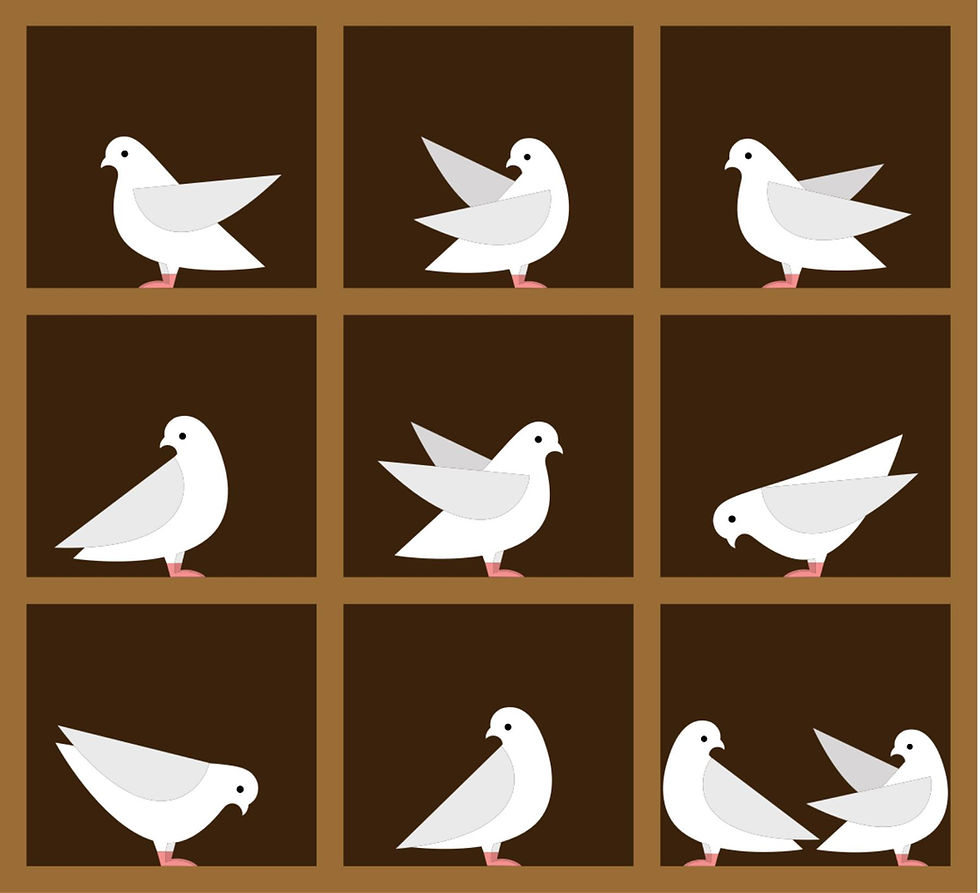Pigeonhole Principle
- Paige Green
- Jan 30, 2024
- 1 min read
Picture three lively pigeons and just two cozy pigeonholes. You can indeed fit those three pigeons into the two pigeonholes, but here's the catch: no matter how you arrange them, one of the pigeonholes has to host more than one pigeon.
This pigeonhole puzzle isn't just a one-time trick; it's part of the fascinating Pigeonhole Principle! Sure, it sounds simple, but the implications are mind-blowing! The Pigeonhole Principle isn't just about birds and holes; it's a sneak peek into the hidden rules of the universe.
Here's an example: People can have anywhere between 1 and 150,000 hairs on their head. So, if we have 150,001 people or over there must be at least 2 people with the same number of hairs on their head. We can apply this to London. London has around 7.5 million people. As previously established we have up to 150,000 choices for the number of hairs people have on their heads. We have 7.5million people to spread out amongst these options. 7.5 million divided by 150,000 equals 50. There simply isn’t room for everyone to have a unique number of hairs on their head. In fact for at least one of the options, there will be at least 50 people who share that number of hairs!


Comments